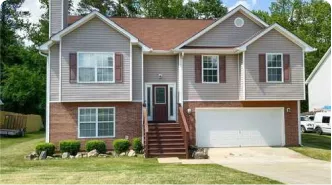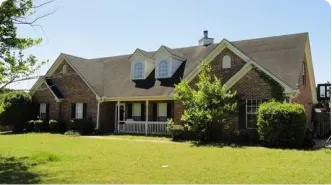Kansas, with its rich cultural heritage and vast prairies, presents unique opportunities for short-term rentals. This overview explores Kansas's legal landscape for Airbnb and vacation rentals, highlighting key state and city-level regulations.
Kansas's Definition of a Short Term Rental
Understanding the nuances of short-term rental definitions and regulations in Kansas is pivotal for property managers and owners. This analysis delves into how Kansas defines short-term rentals like AirBnB, explores any exceptions to this definition, and contrasts these regulations with those in other major states in the U.S.
In Kansas, there is no uniform statewide definition for short-term rentals. These are generally considered rentals of less than 30 consecutive days, but specifics vary based on local city and county laws. Some jurisdictions use 28 days as their threshold, particularly for tax purposes.
Unlike states with comprehensive statewide regulations, Kansas takes a decentralized approach. Each city and county sets its own rules, creating a patchwork of requirements across the state. This means a property in Wichita faces different regulations than one in Lawrence or Kansas City.
Kansas's approach to short-term rentals is largely decentralized, relying on local jurisdictions for specific regulations. This contrasts with other states where regulations can be more uniform and stringent. For property managers, staying informed and compliant with the varying local and state regulations is crucial to ensure successful and legal operation of short-term rental properties.
Starting a Short Term Rental Business in Kansas
Embarking on the journey of starting a short-term rental business in Kansas, particularly through platforms like Airbnb, requires thorough understanding and adherence to various regulations and procedures. This guide aims to provide an overview of the necessary steps, including legal requirements and practical tips, to help you successfully launch and operate your short-term rental business in the Sunflower State.
The process for starting a Kansas Airbnb includes:
- Licensing and Permits: Check for permit or license requirements in your city or county. This may involve submitting property details, local contact information, and licensing fees. Approval times can vary from 30 to 60 days in some cities, so plan ahead.
- Tax Registration: Register with the Kansas Department of Revenue for a tax clearance letter. This can be completed online and is typically processed by the next business day if submitted before 5pm. You will need this before obtaining local permits in most jurisdictions.
- Applying and Registering: The application process often requires property details, site plans, floor drawings, licensing fees ranging from $75 to $500, attesting to housing codes, providing emergency contact info, and maintaining adequate insurance.
- Platform Considerations: Major platforms like Airbnb and VRBO are required to collect sales and transient guest taxes for stays under 29 consecutive days. However, hosts remain responsible for ensuring all local requirements are met.
- Getting Started Tips: Research local regulations, prepare a business plan, create house rules, hire maintenance staff, stage your home attractively, and respond promptly to booking inquiries.
For specific queries about Wyandotte County and Kansas City, Kansas requirements, you can contact:
- Phone: 913-573-5750
- Email: EDR@wycokck.org
- Location: Neighborhood Resource Center, 4953 State Avenue, Kansas City, KS 66102
Short Term Rental Licensing Requirements in Kansas
Navigating the short-term rental licensing requirements in Kansas can be intricate due to the state's approach to decentralizing these regulations. Unlike a uniform statewide policy, Kansas delegates the authority to regulate short-term rentals to local jurisdictions, resulting in a diverse range of rules and requirements across various cities and counties.
To operate a short-term rental in Kansas, hosts must adhere to local regulations, which often involve obtaining a permit or license. The specifics of these requirements vary by municipality. Generally, the application process includes:
- Providing detailed information about the rental property, such as its address, number of bedrooms, and maximum occupancy
- Submitting a site plan and floor drawings
- Paying licensing fees, which can range from $75 to $500
- Attesting compliance with housing codes and regulations
- Providing 24/7 local emergency contact information
- Maintaining adequate insurance coverage, with some cities like Wichita requiring $250,000 in liability coverage
License processing times vary significantly. Lawrence reports 30 to 60 day processing periods, while Kansas City, Missouri processes applications in the order received. Most licenses are non-transferable and require annual renewal, though Lawrence conducts biennial inspections rather than annual ones.
Safety Requirements for Kansas Short Term Rentals
Kansas law mandates several safety features for short-term rental units to ensure guest protection:
Required Safety Equipment:
- Smoke and carbon monoxide detectors
- Properly maintained fire extinguishers
- Clearly marked emergency escape routes, windows, and doors
- Adequate lighting in areas like stairwells and hallways
- Handrails for stairs or steps
Regular safety inspections are advised to ensure compliance and guest safety. Some cities require inspections before licensing, while others like Wichita conduct inspections based on complaints.
Required Documents for Kansas Short Term Rentals
Navigating the requirements for short-term rental licenses in Kansas can be complex. This guide aims to simplify the process by detailing the necessary documents and procedures for successfully obtaining and managing a short-term rental license.
Documents required to get licensed as a short-term rental:
Property Information:
- Address, number of bedrooms, and maximum occupancy
- Detailed site plan and floor drawings
- Proof of ownership or owner's consent
Compliance Documentation:
- Tax clearance letter from Kansas Department of Revenue
- Safety regulations compliance certification
- Insurance documentation showing adequate liability coverage
- Business license for non-owner occupied rentals in some cities
Contact and Identification:
- 24/7 local emergency contact details
- Legal name and Social Security Number or Employer Identification Number
- Proof of residency for owner-occupied rentals
Financial Requirements:
- Licensing fees ranging from $75 to $500
- Proof of tax registration
- Evidence of insurance coverage
Kansas Short Term Rental Taxes
Navigating the tax landscape for short-term rentals in Kansas can be complex, with various taxes at the state and local levels. Understanding these taxes is crucial for operators to remain compliant and optimize their financial planning.
State Sales Tax: Ranges from 6.5% to 11.5%, depending on the city and county. This applies to all short-term rental stays regardless of length.
Transient Guest Tax: This is not a state tax but rather imposed by individual cities and counties. It typically applies to lodging under 28 consecutive days for establishments with more than two bedrooms. Rates vary by jurisdiction.
Local Taxes: Many cities impose additional taxes. For example, Kansas City, Missouri charges a 7.5% convention and tourism tax plus a $3 per night lodging fee as of August 2023.
Short-term rental hosts in Kansas are responsible for collecting, filing, and remitting taxes to appropriate authorities. In Kansas City, Missouri, hosts must file Form RD-306 quarterly. Marketplace facilitators like Airbnb and VRBO are required to collect and remit taxes for stays under 29 days, but hosts should verify compliance with all local requirements.
Tax exemptions apply in certain cases. Stays over 28 consecutive days are exempt from transient guest taxes, though sales tax still applies. Direct purchases by government agencies may also qualify for exemptions.
Short Term Rental Rules By Major Kansas Cities
This overview examines the diverse regulatory landscape for short-term rentals across Kansas's major cities. Each city has its unique approach, reflecting local priorities and challenges.
Kansas City, Missouri Short Term Rental Laws
Note: Kansas City, Missouri regulations often apply to properties near the Kansas border and are frequently confused with Kansas City, Kansas requirements.
- Short-term rentals defined as less than 30 consecutive days
- Registration required through CompassKC platform
- $200 flat registration fee, increases annually with Consumer Price Index
- 7.5% tax on short-term rentals plus $3 nightly lodging fee
- Different rules for owner-occupied versus non-owner-occupied rentals
- Non-resident rentals prohibited in residential zones unless grandfathered
- 1,000-foot density restriction between non-resident STRs in buildings with 1-2 units
- Maximum 12.5% of units in multi-family buildings can be STRs
- Violations result in fines from $200 to $1,000 per day
- 3-year deregistration for properties with 3 or more violations
Wichita Short Term Rental Laws
- Short-term rentals illegal for periods under 7 days in most residential areas without special permit
- Regulated by Unified Zoning Code
- Annual license required at $225 per unit
- License expires after one year and is non-transferable
- $250,000 liability insurance required
- Gatherings must end by 10pm
- 24/7 operator availability required
- Neighbors can protest applications within 2 weeks
- Violations can result in 5-year suspension
- Owner-occupied properties had until March 12, 2024 to obtain licenses
- Properties requiring zoning approval had until September 12, 2024
Lawrence Short Term Rental Laws
- Regulations amended in October 2020 via Ordinance 9740
- Non-owner occupied rentals prohibited in RS and PD zoning districts
- Owner-occupied defined as residing more than 270 days per calendar year
- Maximum of 3 short-term rental properties per licensee or owner
- Biennial inspections rather than annual
- $35 license application fee
- License must be displayed on all listing platforms
- Processing time typically 30 to 60 days
- Contact Planning & Development Services at 785-832-7700
Overland Park Short Term Rental Laws
- Requires rental license for all rental homes
- No specific STR regulations beyond standard rental requirements
- 204 single-family STRs tracked from February 2022 to February 2024
- STRs generate less than 0.5% of police calls
- 82% of residents support licensing and some regulations
- Nuisance party ordinance applies to all properties
- May require collection of 7.5% transient guest tax
- City continuing to analyze impacts, especially considering 2026 World Cup
Topeka Short Term Rental Laws
- Online application portal available for permits
- Three categories: Type I (owner-occupied, 5 or fewer bedrooms), Type II (non-owner occupied, 5 or fewer bedrooms), Type III (6 or more bedrooms)
- Owner-occupied defined as 182 or more days per year residency
- Parking requirements: 1 space per 2 guest bedrooms plus resident parking
- 22 feet of frontage required per on-street parking space
- Use table in Municipal Code determines where STRs are allowed
- 200-foot notification radius for city properties, 1,000-foot for county
- Administrative or conditional use permits may be required based on zoning
Olathe Short Term Rental Laws
- No specific short-term rental regulations
- Standard building and safety codes apply
- Total tax rate of 14.225% (6.5% state plus 7.725% local)
- No licensing requirements specific to STRs
- General business license may be required
Emerging Restrictions in Johnson County
Several Johnson County cities have recently implemented significant restrictions:
- Prairie Village: Banned short-term rentals under 30 days effective November 1, 2025. Current operators must cease operations by this date. Violations carry fines up to $500 per day.
- Shawnee: New regulations effective March 26, 2024 prohibit use as reception or party space. Requires property manager within 40-mile radius. Violations result in minimum $500 fine or potential jail time.
- Lenexa: Requires rental license with strong neighborhood enforcement reported.
Insurance and Liability Considerations
Insurance requirements vary significantly across Kansas jurisdictions. While the state does not mandate specific coverage amounts, local regulations often do:
- Wichita requires $250,000 in liability insurance
- Most cities require proof of adequate insurance during licensing
- Standard homeowner's policies typically do not cover short-term rental activities
- Specialized short-term rental insurance is recommended
Hosts should verify their coverage includes guest injuries, property damage, and loss of income. Many insurance companies now offer policies specifically designed for short-term rental operations.
Enforcement and Penalties
Enforcement mechanisms vary widely across Kansas cities, but common penalties include:
Financial Penalties:
- Kansas City, Missouri: $200 to $1,000 per day for unlicensed operations
- Prairie Village: Up to $500 per day after November 1, 2025
- Shawnee: Minimum $500 fine for violations
License Revocation:
- Wichita: Up to 5-year suspension for violations
- Kansas City, Missouri: 3-year deregistration for multiple violations
- Most cities can revoke licenses for non-compliance
Legal Action:
- Some jurisdictions pursue criminal charges for repeated violations
- Jail time possible in cities like Shawnee and Kansas City
Platform Requirements and Responsibilities
Major booking platforms have specific obligations in Kansas:
- Marketplace facilitators must collect and remit sales and transient guest taxes for stays under 29 days
- Platforms are aware of local ordinance updates and tax requirements
- Hosts remain responsible for ensuring full compliance with local regulations
- Platforms do not verify licensing or permit status
While platforms handle some tax collection, hosts must still register with local authorities, obtain necessary permits, and ensure their listings comply with all applicable regulations.
Best Practices for Compliance
To ensure successful operation of a short-term rental in Kansas:
- Research local regulations before purchasing property or listing
- Obtain tax clearance from Kansas Department of Revenue first
- Apply for local permits well in advance of intended start date
- Maintain detailed records of all transactions and guest stays
- Display license numbers on all listing platforms where required
- Establish relationships with neighbors and address concerns promptly
- Stay informed about regulatory changes in your jurisdiction
- Consider joining local short-term rental associations for support
- Maintain appropriate insurance coverage
- File taxes quarterly or as required by your jurisdiction
Future Outlook
The short-term rental landscape in Kansas continues to evolve. Several trends are emerging:
- More cities are implementing or considering regulations
- The 2026 World Cup is prompting cities to reassess their policies
- Some jurisdictions are moving toward complete bans while others seek balanced approaches
- Tax collection through platforms is becoming standard
- Enforcement is increasing as cities develop better tracking systems
Property owners should monitor local government meetings and stay connected with industry associations to remain informed about potential changes.
Takeaway
Navigating Kansas's short-term rental market requires a keen understanding of both state and local ordinances. The decentralized regulatory approach means requirements vary significantly from city to city. Success in this market demands careful attention to licensing, tax compliance, safety requirements, and evolving local regulations.
For those investing in Kansas's rental space, compliance with these diverse regulations is essential for success. Regular monitoring of regulatory changes and maintaining good relationships with local authorities and neighbors will help ensure sustainable operations in this dynamic market.
.svg)






.webp)







%201.webp)
%203.webp)



%201.webp)
.webp)



.webp)

